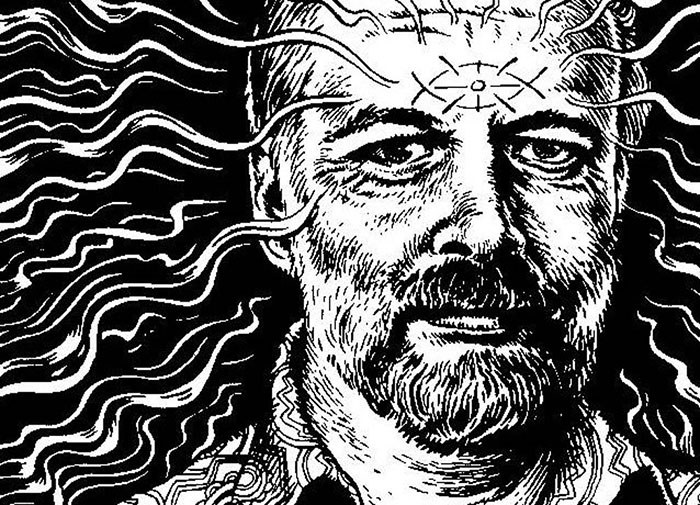Philip K Dick is one of my favorite authors
A pioneer of LSD-era science fiction, his stories are mind bending in ways that few other authors can compare with. There is always a sense in his books that reality is not the way it seems, and the little glimpses behind the curtain only leave one reeling with more questions and uncertainty.
I highly recommend him. His books are all between 200-300 pages, so they’re not too demanding on your time. He’s very philosophically literate, so sometimes the concepts he dabbles in compel a Google search or a paragraph reread or two, but don’t let that deter you. Do Androids Dream of Electric Sheep? is the basis of Bladerunner (although it is a whole lot weirder than Bladerunner) and I highly recommend it as a starting point.
I love that he’s not afraid to dabble in the weird and fantastical. I’ve never been able to get into science fiction that attempts to be an extrapolation of real world technologies, of science fiction that works so hard to convince the reader that what it posits could, one day, be real. A lot of really heavy technical stuff that, in my opinion, just gets in the way of whatever story is being told.
None of that in PKD. Any “science” is there not to show technical know how or to predict the future, but it is there as a way to explore some idea he’s obsessed with.
“Obsessed” is the key word there. In his early career, he used to hammer out sixty pages of fully revised writing a day because he was on amphetamines.
It’s this obsessive nature of his that intrigues me. He writes to work answers out for himself. And he won’t stop writing until he figures it out.
I’m talking about this because I recently read his book, VALIS.
This book… oh, this book.
I don’t recommend reading it until you’ve got a few PKD books under your belt. If you don’t like his style, you won’t like this book in the slightest. All of the tendencies that one can criticize in his work make an appearance, namely that he has a tendency to divert onto highly philosophical tangents for a very long time and it can sometimes be hard to parse.
This is basically “Philosophical Tangents: the Book.”
And it’s great.
It’s a fictionalized account of the time a pink laser beam struck him in the forehead and God spoke to him and sent him on a years long madness wherein he was constantly writing in his journal about what he’d experienced and what it implied about the nature of reality.
It is extraordinarily philosophically dense. I felt way out of my depth and had to reread several pages just to gain even a rudimentary understanding of some of the concepts he bandies about.
Uncertainty about the nature of reality is a staple of PKD. It doesn’t get more uncertain than it does in VALIS.
One of the stranger takeaways from VALIS was the nature of obsession. On one hand, I do envy the obsession of Philip K. Dick. There is a compulsion in him - he has to create, has to write, has to learn - something inside of him demands it. In VALIS it’s focused towards a religious experience, but in A Scanner Darkly it’s focused on drugs and paranoia. I really truly admire his need to get to the bottom of things even when there is no clear answer.
However… his personal life was a complete mess, he attempted suicide several times, and he suffered greatly from severe mental illness.
That, I do not envy. My love for his work brings uncomfortable questions to me about that age-old supposed link between creativity and mental illness. While it was undeniably a terrible thing that he and those around him suffered so much due to his mental state, his work is so brilliant precisely because of his unbalanced, paranoid ways. The questions of reality forever tormented him and it created some of the most unsettling fiction I’ve read.
